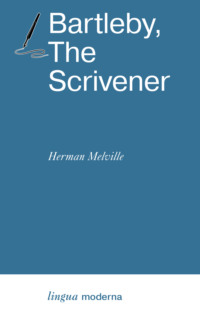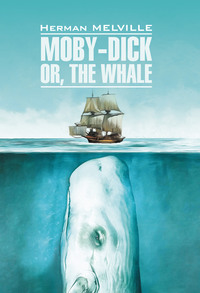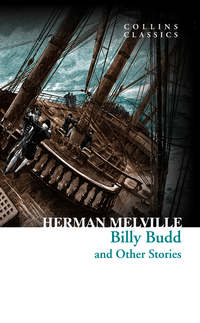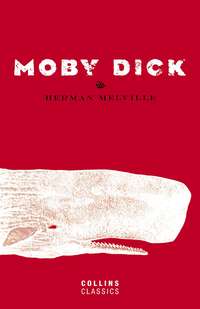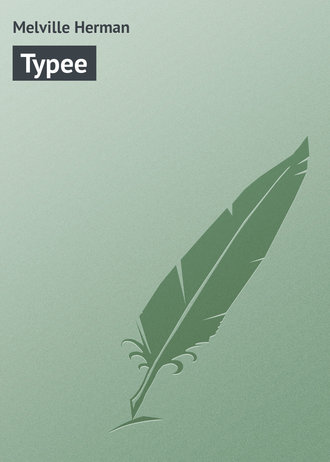
I grieve to state so distressing a fact, but the inhabitants of Typee were in the habit of devouring fish much in the same way that a civilized being would eat a radish, and without any more previous preparation. They eat it raw; scales, bones, gills, and all the inside. The fish is held by the tail, and the head being introduced into the mouth, the animal disappears with a rapidity that would at first nearly lead one to imagine it had been launched bodily down the throat.
Raw fish! Shall I ever forget my sensation when I first saw my island beauty devour one? Oh, heavens! Fayaway, how could you ever have contracted so vile a habit? However, after the first shock had subsided, the custom grew less odious in my eyes, and I soon accustomed myself to the sight. Let no one imagine, however, that the lovely Fayaway was in the habit of swallowing great vulgar-looking fishes: oh, no; with her beautiful small hand she would clasp a delicate, little, golden-hued love of a fish, and eat it as elegantly and as innocently as though it were a Naples biscuit. But, alas! it was after all a raw fish; and all I can say is, that Fayaway ate it in a more ladylike manner than any other girl of the valley.
When at Rome do as the Romans do, I held to be so good a proverb, that being in Typee, I made a point of doing as the Typees did. Thus I ate poee-poee as they did; I walked about in a garb striking for its simplicity; and I reposed on a community of couches; besides doing many other things in conformity with their peculiar habits; but the farthest I ever went in the way of conformity, was on several occasions to regale myself with raw fish. These being remarkably tender, and quite small, the undertaking was not so disagreeable in the main, and after a few trials I positively began to relish them: however, I subjected them to a slight operation with my knife previously to making my repast.
CHAPTER XXVIII
Natural history of the valley – Golden lizards – Tameness of the birds – Mosquitoes – Flies – Dogs – A solitary cat – The climate – The cocoa-nut tree – Singular modes of climbing it – An agile young chief – Fearlessness of the children – Too-too and the cocoa-nut tree – The birds of the valleyThere were some curious-looking dogs in the valley. Dogs! – big, hairless rats rather; all with smooth, shining, speckled hides – fat sides, and very disagreeable faces. Whence could they have come? That they were not the indigenous production of the region, I am firmly convinced. Indeed, they seemed aware of their being interlopers, looking fairly ashamed, and always trying to hide themselves in some dark corner. It was plain enough they did not feel at home in the vale – that they wished themselves well out of it, and back to the ugly country from which they must have come.
Scurvy curs! they were my abhorrence; I should have liked nothing better than to have been the death of every one of them. In fact, on one occasion, I intimated the propriety of a canine crusade to Mehevi but the benevolent king would not consent to it. He heard me very patiently; but when I had finished, shook his head, and told me in confidence, that they were “taboo.”
As for the animal that made the fortune of my lord mayor Whittington, I shall never forget the day that I was lying in the house about noon, everybody else being fast asleep; and happening to raise my eyes, met those of a big black spectral cat, which sat erect in the doorway, looking at me with its frightful goggling green orbs, like one of those monstrous imps that tormented some of the olden saints! I am one of those unfortunate persons, to whom the sight of these animals is at any time an insufferable annoyance.
Thus constitutionally averse to cats in general, the unexpected apparition of this one in particular utterly confounded me. When I had a little recovered from the fascination of its glance, I started up; the cat fled, and emboldened by this, I rushed out of the house in pursuit; but it had disappeared. It was the only time I ever saw one in the valley, and how it got there I cannot imagine. It is just possible that it might have escaped from one of the ships at Nukuheva. It was in vain to seek information on the subject from the natives, since none of them had seen the animal, the appearance of which remains a mystery to me to this day.
Among the few animals which are to be met with in Typee, there was none which I looked upon with more interest than a beautiful golden-hued species of lizard. It measured perhaps five inches from head to tail, and was most gracefully proportioned. Numbers of those creatures were to be seen basking in the sunshine upon the thatching of the houses, and multitudes at all hours of the day showed their glittering sides as they ran frolicking between the spears of grass, or raced in troops up and down the tall shafts of the cocoa-nut trees. But the remarkable beauty of these little animals and their lively ways were not their only claims upon my admiration. They were perfectly tame and insensible to fear. Frequently, after seating myself upon the ground in some shady place during the heat of the day, I would be completely overrun with them. If I brushed one off my arm, it would leap perhaps into my hair: when I tried to frighten it away by gently pinching its leg, it would turn for protection to the very hand that attacked it.
The birds are also remarkably tame. If you happened to see one perched upon a branch within reach of your arm, and advanced towards it, it did not fly away immediately, but waited quietly looking at you, until you could almost touch it, and then took wing slowly, less alarmed at your presence, it would seem, than desirous of removing itself from your path. Had salt been less scarce in the valley than it was, this was the very place to have gone birding with it.
I remember that once, on an uninhabited island of the Gallipagos, a bird alighted on my outstretched arm, while its mate chirped from an adjoining tree. Its tameness, far from shocking me, as a similar occurrence did Selkirk, imparted to me the most exquisite thrill of delight I ever experienced; and with somewhat of the same pleasure did I afterwards behold the birds and lizards of the valley show their confidence in the kindliness of man.
Among the numerous afflictions which the Europeans have entailed upon some of the natives of the South Seas, is the accidental introduction among them of that enemy of all repose and ruffler of even tempers – the mosquito. At the Sandwich Islands, and at two or three of the Society group, there are now thriving colonies of these insects, who promise ere long to supplant altogether the aboriginal sand-flies. They sting, buzz, and torment, from one end of the year to the other, and by incessantly exasperating the natives, materially obstruct the benevolent labours of the missionaries.
From this grievous visitation, however, the Typees are as yet wholly exempt; but its place is unfortunately in some degree supplied by the occasional presence of a minute species of fly, which, without stinging, is nevertheless productive of no little annoyance. The tameness of the birds and lizards is as nothing when compared to the fearless confidence of this insect. He will perch upon one of your eye-lashes, and go to roost there, if you do not disturb him, or force his way through your hair, or along the cavity of the nostril, till you almost fancy he is resolved to explore the very brain itself. On one occasion I was so inconsiderate as to yawn while a number of them were hovering around me. I never repeated the act. Some half-dozen darted into the open compartment, and began walking about its ceiling; the sensation was dreadful. I involuntarily closed my mouth, and the poor creatures, being enveloped in inner darkness, must in their consternation have stumbled over my palate, and been precipitated into the gulf beneath. At any rate, though I afterwards charitably held my mouth open for at least five minutes, with a view of affording egress to the stragglers, none of them ever availed themselves of the opportunity.
There are no wild animals of any kind on the island, unless it be de cided that the natives themselves are such. The mountains and the interior present to the eye nothing but silent solitudes, unbroken by the roar of beasts of prey, and enlivened by few tokens even of minute animated existence. There are no venomous reptiles, and no snakes of any description to be found in any of the valleys.
In a company of Marquesan natives the weather affords no topic of conversation. It can hardly be said to have any vicissitudes. The rainy season, it is true, brings frequent showers, but they are intermitting and refreshing. When an islander, bound on some expedition, rises from his couch in the morning, he is never solicitous to peep out and see how the sky looks, or ascertain from what quarter the wind blows. He is always sure of a “fine day,” and the promise of a few genial showers he hails with pleasure. There is never any of that“remarkable weather” on the islands which from time immemorial has been experienced in America, and still continues to call forth the wondering conversational exclamations of its elderly citizens. Nor do there even occur any of those eccentric meteorological changes which elsewhere surprise us. In the valley of Typee ice-creams would never be rendered less acceptable by sudden frosts, nor would picnic parties be deferred on account of inauspicious snowstorms: for there day follows day in one unvarying round of summer and sunshine, and the whole year is one long tropical month of June just melting into July.
It is this genial climate which causes the cocoa-nuts to flourish as they do. This invaluable fruit, brought to perfection by the rich soil of the Marquesas, and borne aloft on a stately column more than a hundred feet from the ground, would seem at first almost inaccessible to the simple natives. Indeed, the slender, smooth, and soaring shaft, without a single limb or protuberance of any kind to assist one in mounting it, presents an obstacle only to be overcome by the surprising agility and ingenuity of the islanders. It might be supposed that their indolence would lead them patiently to await the period when the ripened nuts, slowly parting from their stems, fall one by one to the ground. This certainly would be the case, were it not that the young fruit, encased in a soft green husk, with the incipient meat adhering in a jelly-like pellicle to its sides, and containing a bumper of the most delicious nectar, is what they chiefly prize. They have at least twenty different terms to express as many progressive stages in the growth of the nut. Many of them reject the fruit altogether except at a particular period of its growth, which, incredible as it may appear, they seemed to me to be able to ascertain within an hour or two. Others are still more capricious in their tastes; and after gathering together a heap of the nuts of all ages, and ingeniously tapping them, will first sip from one and then from another, as fastidiously as some delicate wine-bibber experimenting, glass in hand, among his dusty demijohns of different vintages.
Some of the young men, with more flexible frames than their comrades, and perhaps with more courageous souls, had a way of walking up the trunk of the cocoa-nut trees which to me seemed little less than miraculous; and when looking at them in the act, I experienced that curious perplexity a child feels when he beholds a fly moving feet uppermost along a ceiling.
I will endeavour to describe the way in which Narnee, a noble young chief, sometimes performed this feat for my particular gratification; but his preliminary performances must also be recorded. Upon my signifying my desire that he should pluck me the young fruit of some particular tree, the handsome savage, throwing himself into a sudden attitude of surprise, feigns astonishment at the apparent absurdity of the request. Maintaining this position for a moment, the strange emotions depicted on his countenance soften down into one of humorous resignation to my will, and then, looking wistfully up to the tufted top of the tree, he stands on tip-toe, straining his neck and elevating his arms, as though endeavouring to reach the fruit from the ground where he stands. As if defeated in this childish attempt, he now sinks to the earth despondingly, beating his breast in well-acted despair; and then, starting to his feet all at once, and throwing back his head, raises both hands, like a schoolboy about to catch a falling ball. After continuing this for a moment or two, as if in expectation that the fruit was going to be tossed down to him by some good spirit in the tree-top, he turns wildly round in another fit of despair, and scampers off to the distance of thirty or forty yards. Here he remains awhile, eyeing the tree, the very picture of misery; but the next moment, receiving, as it were, a flash of inspiration, he rushes again towards it, and clasping both arms about the trunk, with one elevated a little above the other, he presses the soles of his feet close together against the tree, extending his legs from it until they are nearly horizontal, and his body becomes doubled into an arch; then, hand over hand and foot after foot, he rises from the earth with steady rapidity, and almost before you are aware of it, has gained the cradled and embowered nest of nuts, and with boisterous glee flings the fruit to the ground.
This mode of walking the tree is only practicable where the trunk declines considerably from the perpendicular. This, however, is almost always the case; some of the perfectly straight shafts of the trees leaning at an angle of thirty degrees.
The less active among the men, and many of the children of the valley, have another method of climbing. They take a broad and stout piece of bark, and secure either end of it to their ankles: so that when the feet thus confined are extended apart, a space of little more than twelve inches is left between them. This contrivance greatly facilitates the act of climbing. The band pressed against the tree, and closely embracing it, yields a pretty firm support; while with the arms clasped about the trunk, and at regular intervals sustaining the body, the feet are drawn up nearly a yard at a time, and a corresponding elevation of the hands immediately succeeds. In this way I have seen little children, scarcely five years of age, fearlessly climbing the slender pole of a young cocoa-nut tree, and while hanging perhaps fifty feet from the ground, receiving the plaudits of their parents beneath, who clapped their hands, and encouraged them to mount still higher.
What, thought I, on first witnessing one of these exhibitions, would the nervous mothers of America and England say to a similar display of hardihood in any of their children? The Lacedemonian nation might have approved of it, but most modern dames would have gone into hysterics at the sight.
At the top of the cocoa-nut tree the numerous branches, radiating on all sides from a common centre, form a sort of green and waving basket, between the leaflets of which you just discern the nuts thickly clustering together, and on the loftier trees looking no bigger from the ground than bunches of grapes. I remember one adventurous little fellow – Too-Too was the rascal’s name – who had built himself a sort of aërial baby-house in the picturesque tuft of a tree adjoining Marheyo’s habitation. He used to spend hours there, – rustling among the branches, and shouting with delight every time the strong gusts of wind, rushing down from the mountain side, swayed to and fro the tall and flexible column on which he was perched. Whenever I heard Too-Too’s musical voice sounding strangely to the ear from so great a height, and beheld him peeping down upon me from out his leafy covert, he always recalled to my mind Dibdin’s lines —
There’s a sweet little cherub that sits up aloft,To look out for the life of poor Jack.Birds – bright and beautiful birds – fly over the valley of Typee. You see them perched aloft among the immovable boughs of the majestic bread-fruit trees, or gently swaying on the elastic branches of the Omoo; skimming over the palmetto-thatching of the bamboo huts; passing like spirits on the wing through the shadows of the grove, and sometimes descending into the bosom of the valley in gleaming flights from the mountains. Their plumage is purple and azure, crimson and white, black and gold; with bills of every tint; – bright bloody-red, jet black, and ivory white; and their eyes are bright and sparkling; they go sailing through the air in starry throngs; but, alas! the spell of dumbness is upon them all – there is not a single warbler in the valley!
I know not why it was, but the sight of these birds, generally the ministers of gladness, always oppressed me with melancholy. As in their dumb beauty they hovered by me whilst I was walking, or looked down upon me with steady curious eyes from out the foliage, I was almost inclined to fancy that they knew they were gazing upon a stranger, and that they commiserated his fate.
CHAPTER XXIX
A professor of the fine arts – His persecutions – Something about tattooing and tabooing – Two anecdotes in illustration of the latter – A few thoughts on the Typee dialectIn one of my strolls with Kory-Kory, in passing along the border of a thick growth of bushes, my attention was arrested by a singular noise. On entering the thicket, I witnessed for the first time the operation of tattooing as performed by these islanders.
I beheld a man extended flat upon his back, on the ground, and, despite the forced composure of his countenance, it was evident that he was suffering agony. His tormentor bent over him, working away for all the world like a stone-cutter with mallet and chisel. In one hand he held a short slender stick, pointed with a shark’s tooth, on the upright end of which he tapped with a small hammer-like piece of wood, thus puncturing the skin, and charging it with the colouring matter in which the instrument was dipped. A cocoa-nut shell containing this fluid was placed upon the ground. It is prepared by mixing with a vegetable juice the ashes of the “armor,” or candle-nut, always preserved for the purpose. Beside the savage, and spread out upon a piece of soiled tappa, were a great number of curious black-looking little implements of bone and wood, used in the various divisions of his art. A few terminated in a single fine point, and, like very delicate pencils, were employed in giving the finishing touches, or in operating upon the more sensitive portions of the body, as was the case of the present instance. Others presented several points distributed in a line, somewhat resembling the teeth of a saw. These were employed in the coarser parts of the work, and particularly in pricking in straight marks. Some presented their points disposed in small figures, and being placed upon the body, were, by a single blow of the hammer, made to leave their indelible impression. I observed a few, the handles of which were mysteriously curved, as if intended to be introduced into the orifice of the ear, with a view perhaps of beating the tattoo upon the tympanum. Altogether, the sight of these strange instruments recalled to mind that display of cruel-looking mother-of-pearl-handled things which one sees in their velvet-lined cases at the elbow of a dentist.
The artist was not at this time engaged on an original sketch, his subject being a venerable savage, whose tattooing had become somewhat faded with age and needed a few repairs, and accordingly he was merely employed in touching up the works of some of the old masters of the Typee school, as delineated upon the human canvas before him. The parts operated upon were the eyelids, where a longitudinal streak, like the one which adorned Kory-Kory, crossed the countenance of the victim.
In spite of all the efforts of the poor old man, sundry twitchings and screwings of the muscles of the face denoted the exquisite sensibility of these shutters to the windows of his soul, which he was now having repainted. But the artist, with a heart as callous as that of an army surgeon, continued his performance, enlivening his labours with a wild chant, tapping away the while as merrily as a woodpecker.
So deeply engaged was he in his work, that he had not observed our approach, until, after having enjoyed an unmolested view of the operation, I chose to attract his attention. As soon as he perceived me, supposing that I sought him in his professional capacity, he seized hold of me in a paroxysm of delight, and was all eagerness to begin the work. When, however, I gave him to understand that he had altogether mistaken my views, nothing could exceed his grief and disappointment. But recovering from this, he seemed determined not to credit my assertion, and grasping his implements, he flourished them about in fearful vicinity to my face, going through an imaginary performance of his art, and every moment bursting into some admiring exclamation at the beauty of his designs.
Horrified at the bare thought of being rendered hideous for life if the wretch were to execute his purpose upon me, I struggled to get away from him, while Kory-Kory, turning traitor, stood by, and besought me to comply with the outrageous request. On my reiterated refusals the excited artist got half beside himself, and was overwhelmed with sorrow at losing so noble an opportunity of distinguishing himself in his profession.
The idea of engrafting his tattooing upon my white skin filled him with all a painter’s enthusiasm: again and again he gazed into my countenance, and every fresh glimpse seemed to add to the vehemence of his ambition. Not knowing to what extremities he might proceed, and shuddering at the ruin he might inflict upon my figurehead, I now endeavoured to draw off his attention from it, and holding out my arm in a fit of desperation, signed to him to commence operations. But he rejected the compromise indignantly, and still continued his attack on my face, as though nothing short of that would satisfy him. When his forefinger swept across my features, in laying out the borders of those parallel bands which were to encircle my countenance, the flesh fairly crawled upon my bones. At last, half wild with terror and indignation, I succeeded in breaking away from the three savages, and fled towards old Marheyo’s house, pursued by the indomitable artist, who ran after me, implements in hand. Kory-Kory, however, at last interfered, and drew him off from the chase.
This incident opened my eyes to a new danger; and I now felt convinced that in some luckless hour I should be disfigured in such a manner as never more to have the face to return to my countrymen, even should an opportunity offer.
These apprehensions were greatly increased by the desire which King Mehevi and several of the inferior chiefs now manifested that I should be tattooed. The pleasure of the king was first signified to me some three days after my casual encounter with Karky the artist. Heavens! what imprecations I showered upon that Karky. Doubtless he had plotted a conspiracy against me and my countenance, and would never rest until his diabolical purpose was accomplished. Sev eral times I met him in various parts of the valley, and, invariably, whenever he descried me, he came running after me with his mallet and chisel, flourishing them about my face as if he longed to begin. What an object he would have made of me!
When the king first expressed his wish to me, I made known to him my utter abhorrence of the measure, and worked myself into such a state of excitement, that he absolutely stared at me in amazement. It evidently surpassed his majesty’s comprehension how any sober-minded and sensible individual could entertain the least possible objection to so beautifying an operation.
Soon afterwards he repeated his suggestion, and meeting with a like repulse, showed some symptoms of displeasure at my obduracy. On his a third time renewing his request, I plainly perceived that something must be done, or my visage was ruined for ever; I therefore screwed up my courage to the sticking point, and declared my willingness to have both arms tattooed from just above the wrist to the shoulder. His majesty was greatly pleased at the proposition, and I was congratulating myself with having thus compromised the matter, when he intimated that as a thing of course my face was first to undergo the operation. I was fairly driven to despair; nothing but the utter ruin of my “face divine,” as the poets call it, would, I perceived, satisfy the inexorable Mehevi and his chiefs, or rather that infernal Karky, for he was at the bottom of it all.


